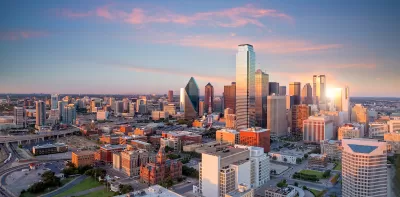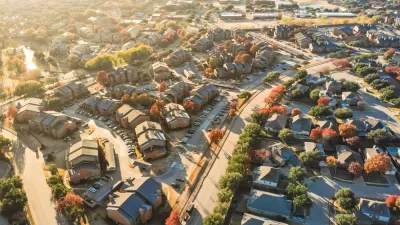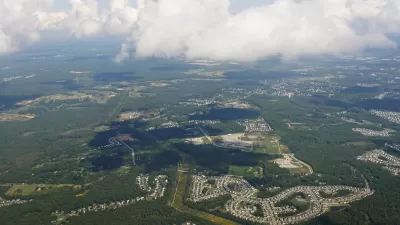The Dallas City Council voted to change the city’s building code to allow up to eight residential units in three-story buildings.

In late April, the Dallas City Council approved a change to the city’s building code that allows up to eight residential units in three-story buildings, a quiet but significant shift that could make a major dent in the city’s need for new housing.
A post in Strong Towns explains the potential of the new law, which will allow developers to build denser, more affordable ‘missing middle’ housing. “This change in Dallas won’t solve the housing crisis. But it removes a key obstacle. It creates the conditions where small-scale, bottom-up development can actually happen.”
Dallas could serve as a model for other cities. Rather than waiting for a silver bullet, cities should look to “small, sensible changes” like Dallas’s building code change that can incrementally build more affordable, walkable, and sustainable neighborhoods. “Because a strong town isn’t built overnight. It’s built by shifting the systems that are holding it back.”
FULL STORY: Small Changes With Big Impacts in Dallas

Planetizen Federal Action Tracker
A weekly monitor of how Trump’s orders and actions are impacting planners and planning in America.

Vehicle-related Deaths Drop 29% in Richmond, VA
The seventh year of the city's Vision Zero strategy also cut the number of people killed in alcohol-related crashes by half.

As Trump Phases Out FEMA, Is It Time to Flee the Floodplains?
With less federal funding available for disaster relief efforts, the need to relocate at-risk communities is more urgent than ever.

LA Transit Ridership Plummets Amidst ICE Raids
LA Metro’s bus and rail lines are seeing up to 15 percent lower ridership in the wake of violent immigration arrests.

A New Texas Neighborhood is Powered by Geothermal Energy
The 7,500-home development claims to be Austin’s ‘first zero energy planned community.’

Data: In Rural America, Mobile Homes are Heat Traps
Extreme heat is often viewed as an urban problem, but rural communities face their own unique risks.
Urban Design for Planners 1: Software Tools
This six-course series explores essential urban design concepts using open source software and equips planners with the tools they need to participate fully in the urban design process.
Planning for Universal Design
Learn the tools for implementing Universal Design in planning regulations.
Heyer Gruel & Associates PA
JM Goldson LLC
Custer County Colorado
City of Camden Redevelopment Agency
City of Astoria
Transportation Research & Education Center (TREC) at Portland State University
Camden Redevelopment Agency
City of Claremont
Municipality of Princeton (NJ)





























